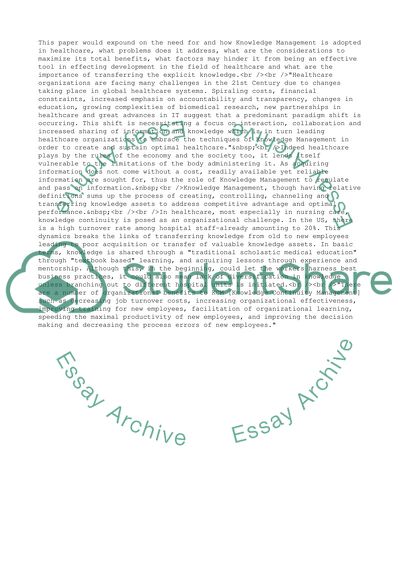Cite this document
(Knowledge Management in Healthcare Assignment Example | Topics and Well Written Essays - 1250 words, n.d.)
Knowledge Management in Healthcare Assignment Example | Topics and Well Written Essays - 1250 words. https://studentshare.org/management/1528705-knowledge-management-in-healthcare
Knowledge Management in Healthcare Assignment Example | Topics and Well Written Essays - 1250 words. https://studentshare.org/management/1528705-knowledge-management-in-healthcare
(Knowledge Management in Healthcare Assignment Example | Topics and Well Written Essays - 1250 Words)
Knowledge Management in Healthcare Assignment Example | Topics and Well Written Essays - 1250 Words. https://studentshare.org/management/1528705-knowledge-management-in-healthcare.
Knowledge Management in Healthcare Assignment Example | Topics and Well Written Essays - 1250 Words. https://studentshare.org/management/1528705-knowledge-management-in-healthcare.
“Knowledge Management in Healthcare Assignment Example | Topics and Well Written Essays - 1250 Words”. https://studentshare.org/management/1528705-knowledge-management-in-healthcare.


